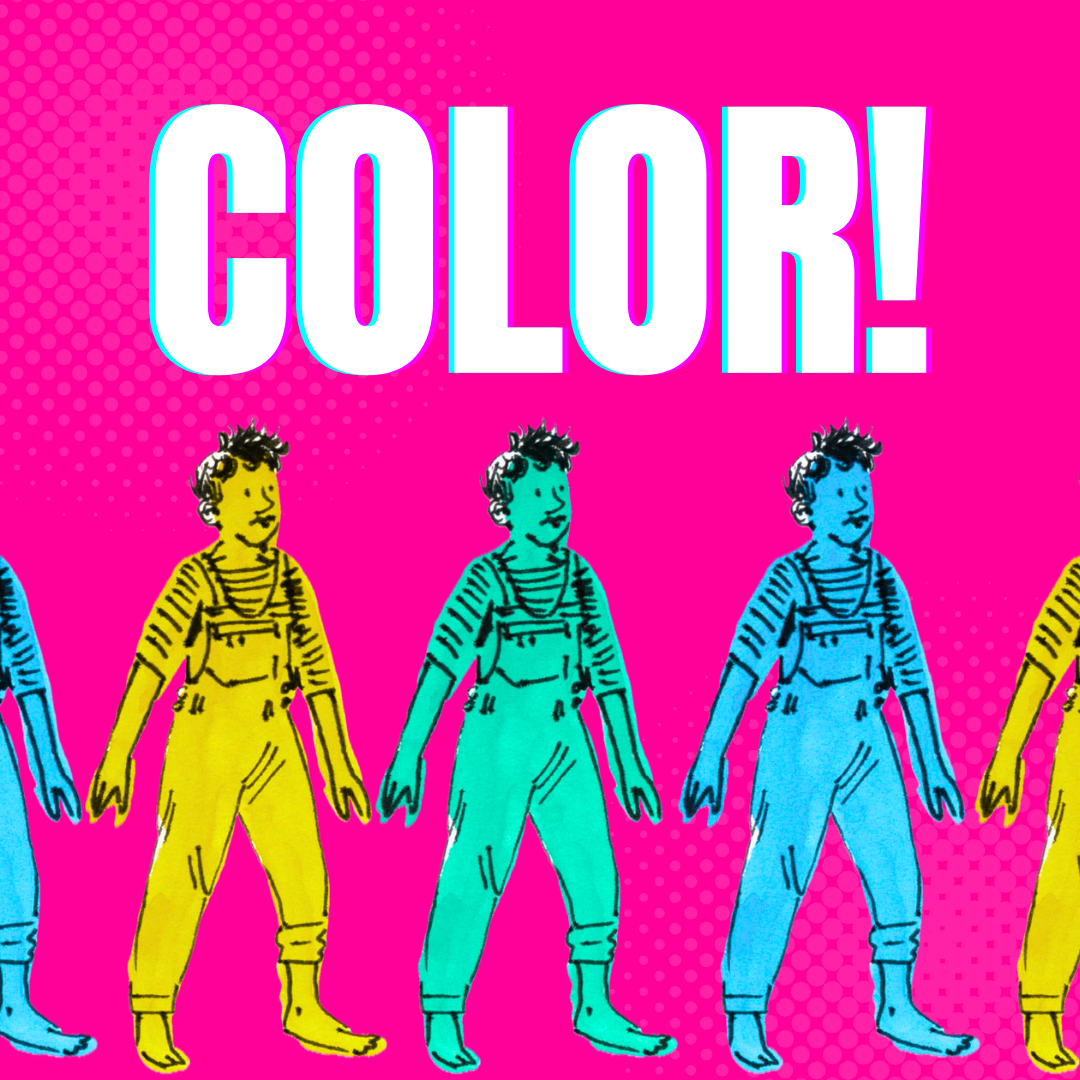
NOTES FROM SAW
Here’s the place to check out everything that’s been going on at SAW including what we're learning, reading and drawing.
Shame Stories with Cara Gormally - Starts July 1, 2024
What are the stories that keep us small? That make us feel unloveable? 🤔 Comics are powerful. Comics can help release us from what keeps us stuck. Explore your Cone of Shame Stories with Cara Gormally in a 4-Week Online Zoom course kicking off July 1st.
Aleksandar Zograf - 90s Mini-Comics Oral History Archives
Saša Rakezić (born 1963 in Pančevo, Serbia), better known by his pen name Aleksandar Zograf, is a Serbian cartoonist, who was working in the former Yugoslavia in the 80s and 90s.
His was the main and sometimes only cartooning voice that many in the United States knew of from that region, and was very active in American mini-comics and underground publishing. Chris Lanier, on Zograf's website, writes, "Zograf's email dispatches (later collected in a book titled "Bulletins from Serbia," published by Slab-O-Concrete), ... talked about the images on Serbian TV, which mixed together old Yugoslavian war movies, Disney films, and news footage of gypsies taking scrap metal from a downed F-117 NATO plane. He mentioned the email battle of insults which took place after some Italians got hold of the email addresses of American bomber pilots, and forwarded them to Serbian friends living in towns that were slated for attack. He told how a refinery near his home was bombed, and released a cloud of steam that engulfed the area. He and his wife looked out the window of their flat, and "we saw just white fog, as if the whole world had disappeared..."
His many works include books about this time, Life Under Sanctions and Bulletins from Serbia, but he also created many dream comics, notably Psychonaut, and Dream Watcher.
His website is http://www.aleksandarzograf.com/http:...
We're very honored he spoke with us.
Thanks for listening!
From Story to Pitch: 4 Weekly Zoom Talks with Rob Clough
4 Weekly Zoom talks wtih Q+A taking you from story idea to pitching your book.
HOW TO DEAL WITH CRITICISM IN COMICS
This week on the Terrible Anvil we talked about CRITICISM!
Criticism and rejection are inevitable parts of the creative process—so how can we make them more bearable?
Carl Antonowicz - SAW Pro-Call
It was a privilege to have cartoonist Carl Antonowicz speak at the Sequential Artists Workshop about his journey through comics and performance art, among his many other creative endeavors!
ABOUT CARL:
Carl Antonowicz is a Tulsa-based illustrator, performer, writer, director, cartoonist, and calligrapher. He dabbles in medieval history, the occult, theatre, and any of a number of other enterprises. He is currently enjoying his third year in the Tulsa Artist Fellowship.
Carl earned his Master's of Fine Arts in Cartooning at the Center for Cartoon Studies in 2011, and his Bachelor of Arts in Studio Arts and English Literature from Austin College in 2008. He recommends both institutions highly.
COLLABORATION IN COMICS
This week we talked all about creative collaboration!
Comics can often be a solitary endeavor, but you'll find lots of ways to collaborate with other people—be it editors, writers, artists, colorists, copy editors, designers, publishers or co-creators!
Collaboration in any art form can be a great way to breathe new life into the creative process. They can be scary or uncomfortable if you're used to having total control over your creative projects, or this shared control might feel liberating.
Either way, there's lots to gain from working with others on a shared project, from morale boosts and accountability systems, to practical knowledge sharing and the creative alchemy of multiple minds coming together.
But how do collaborations happen? How do you make them successful? How can you maximize fun and minimize pain in the process?
There's lots of advice in this episode, but the core of it is to establish clear communication and boundaries and to have a shared goal with your collaborators.
Merch Table with Tommi Parrish
Tommi Parrish Invites You to Join Them for 4 Weeks of Creative Play
Tom Motley - 90s Mini-Comics Oral History Archives
Enjoy this interview with Tom Motley who treated us to page by page review of an issue of the Fandom House catalog from the early 90s and showing us so many of the things that were available in the catalog. Giving us stories, giving us context and finding a few really interesting cultural threads in there too.
I'm really happy Tom could come on and share with us. Tom is a kind soul and a really interesting creative thinker-- someone who's going to be experimenting and looking for how the medium works, but also celebrating the stranger more marginal ways in which people have made comics, and celebrating the stranger and more marginal creators.
It's great to have him as our guide, through this, walk through 80s and 90s mini-comics. Enjoy.
Thanks for listening!
Background Music: How, When, and Why to Draw Backgrounds
This week on The Terrible Anvil, we talked about BACKGROUNDS!
We talked about the link between last week's topic, EXPECTATIONS and backgrounds—what we THINK backgrounds should look like, as well as what readers might expect…
FINDING JOY AND SUSTAINABILITY IN COMICS
This week we got rather philosophical here at the Terrible Anvil podcast!
We tackled lots of big ideas, but circled back again and again to finding joy in the hard parts of comics (and within the confines of capitalist markets).
We also discussed drawing inspiration from the world around us—zooming out can get us out of our heads and give our work room to breathe.
But our power to tell stories comes from within us too!
We go over ways to tap into our own creative energy, even when we've reached a state of burnout. Finding ways to reignite the joy of our creative process can lead us to more sustainable art practices—especially when we're working on dark, heavy topics.
Joe Chiappetta - 90s Mini-Comics Oral History Archives
Joe Chiappetta is the creator of the much loved comic series, Silly Daddy. From his Wikipedia: Chiappetta began publishing Silly Daddy in 1991. A graphic novel collection of his work came out in 1994, featuring a decade of art. Chiappetta began posting Silly Daddy as a webcomic in 2004, and moved it to Blogger in early 2007.
https://joechiappetta.blogspot.com/p/books.html




















